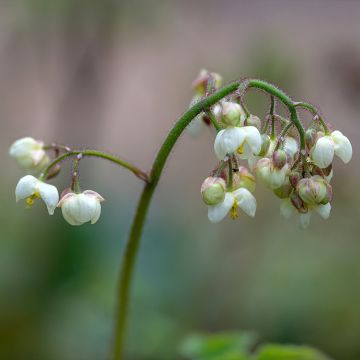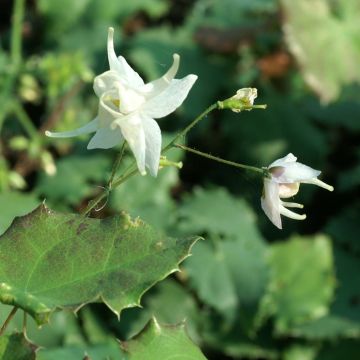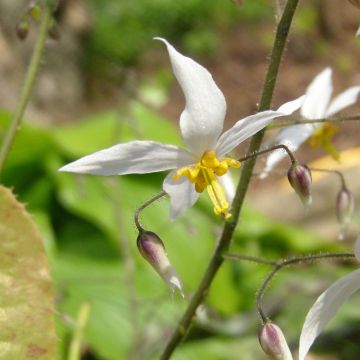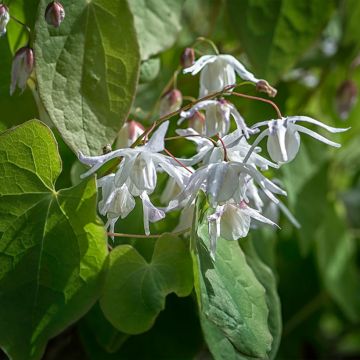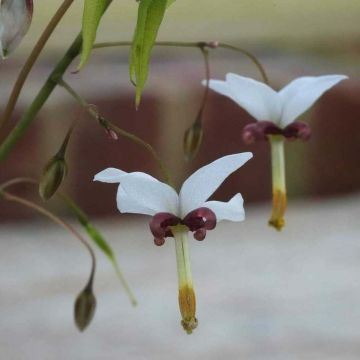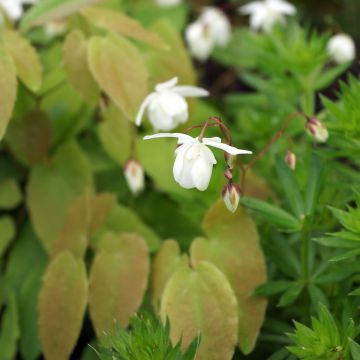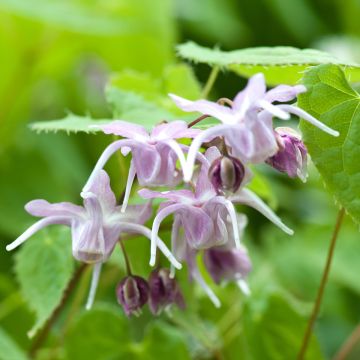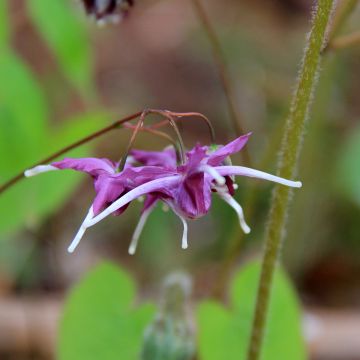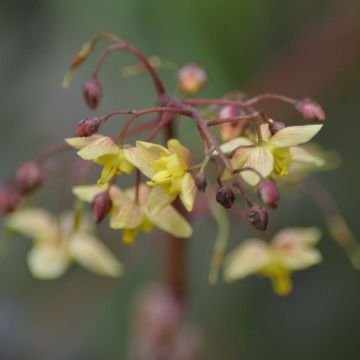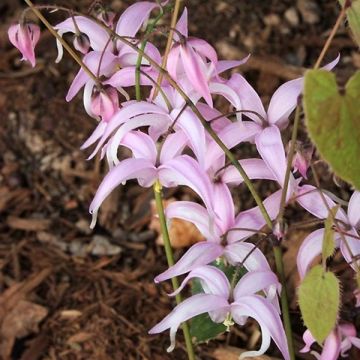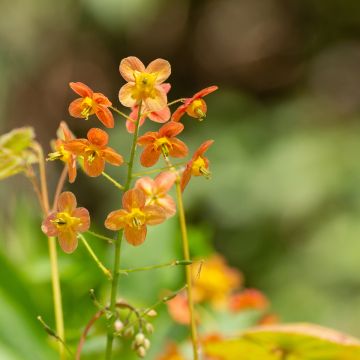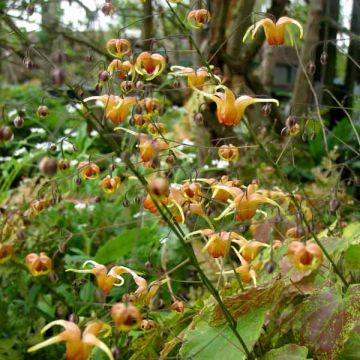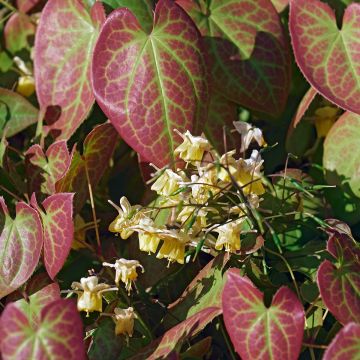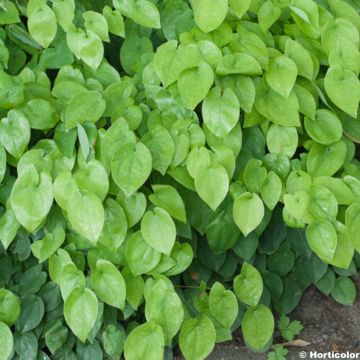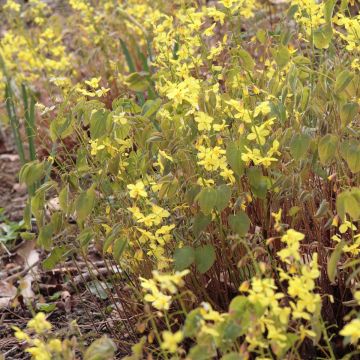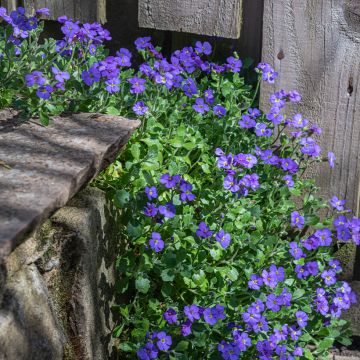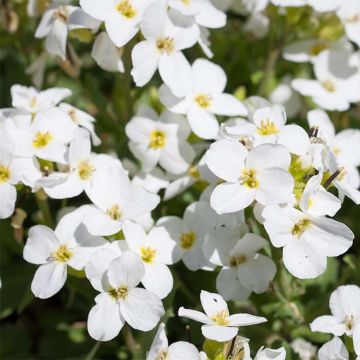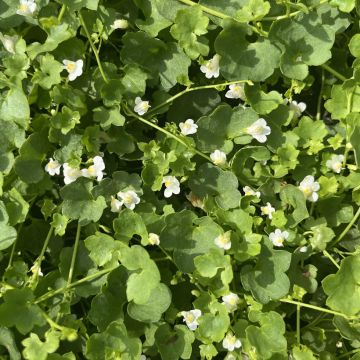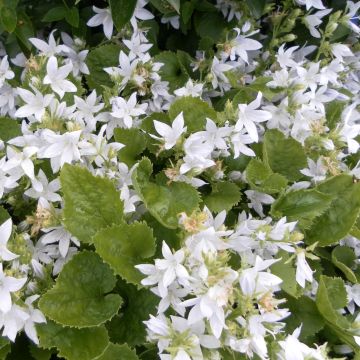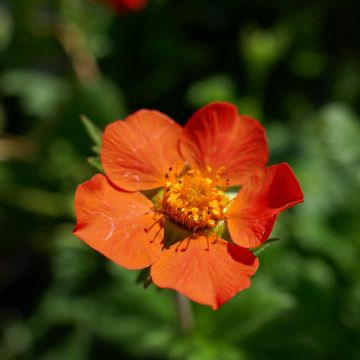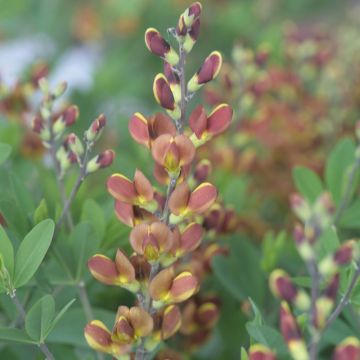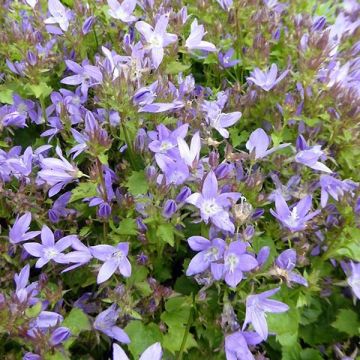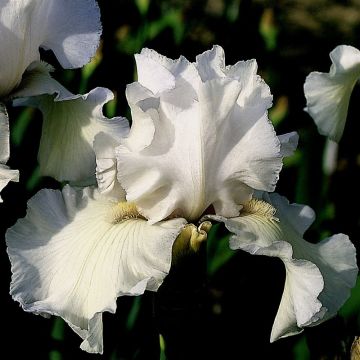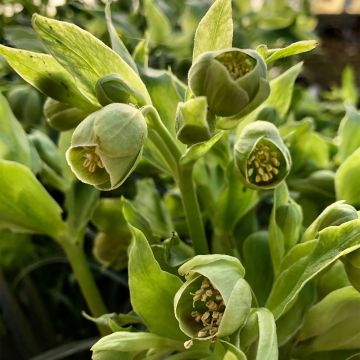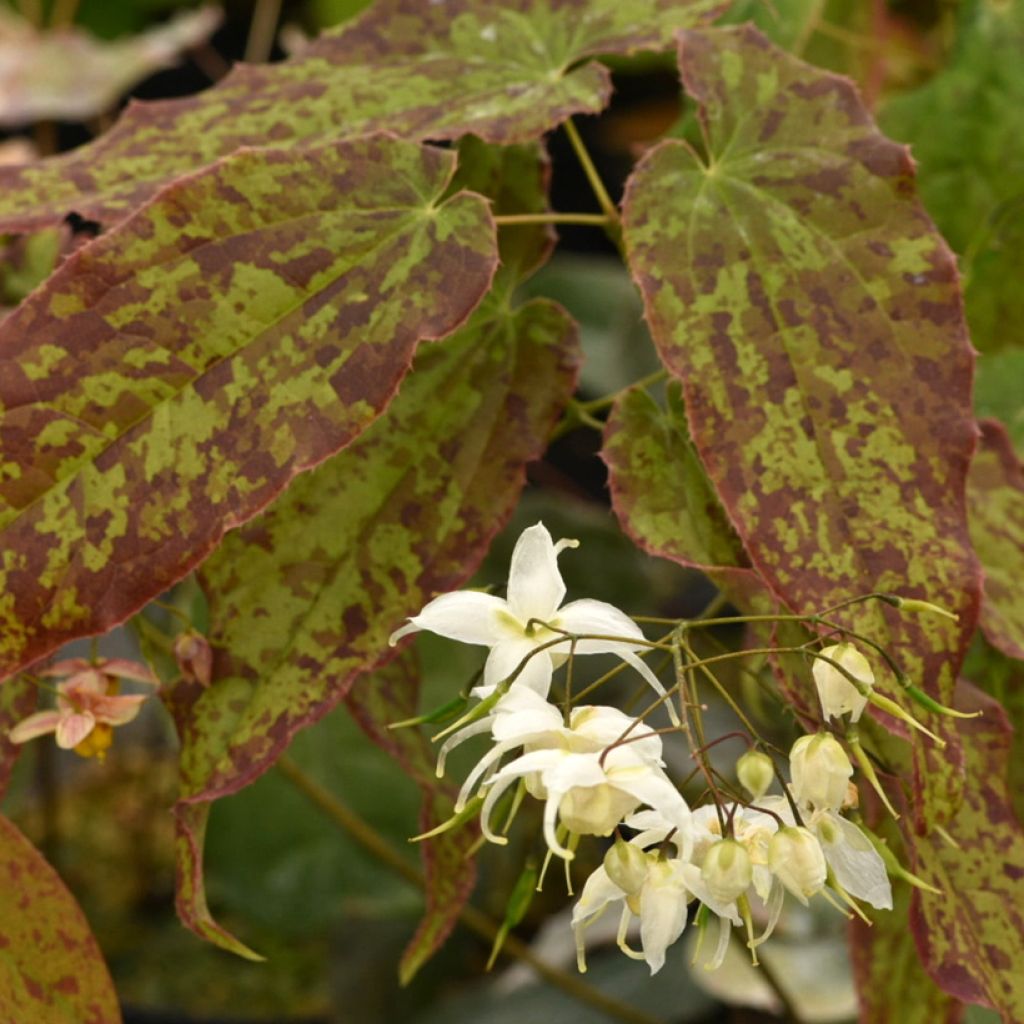

Epimedium Elenwe - Fleurs des Elfes
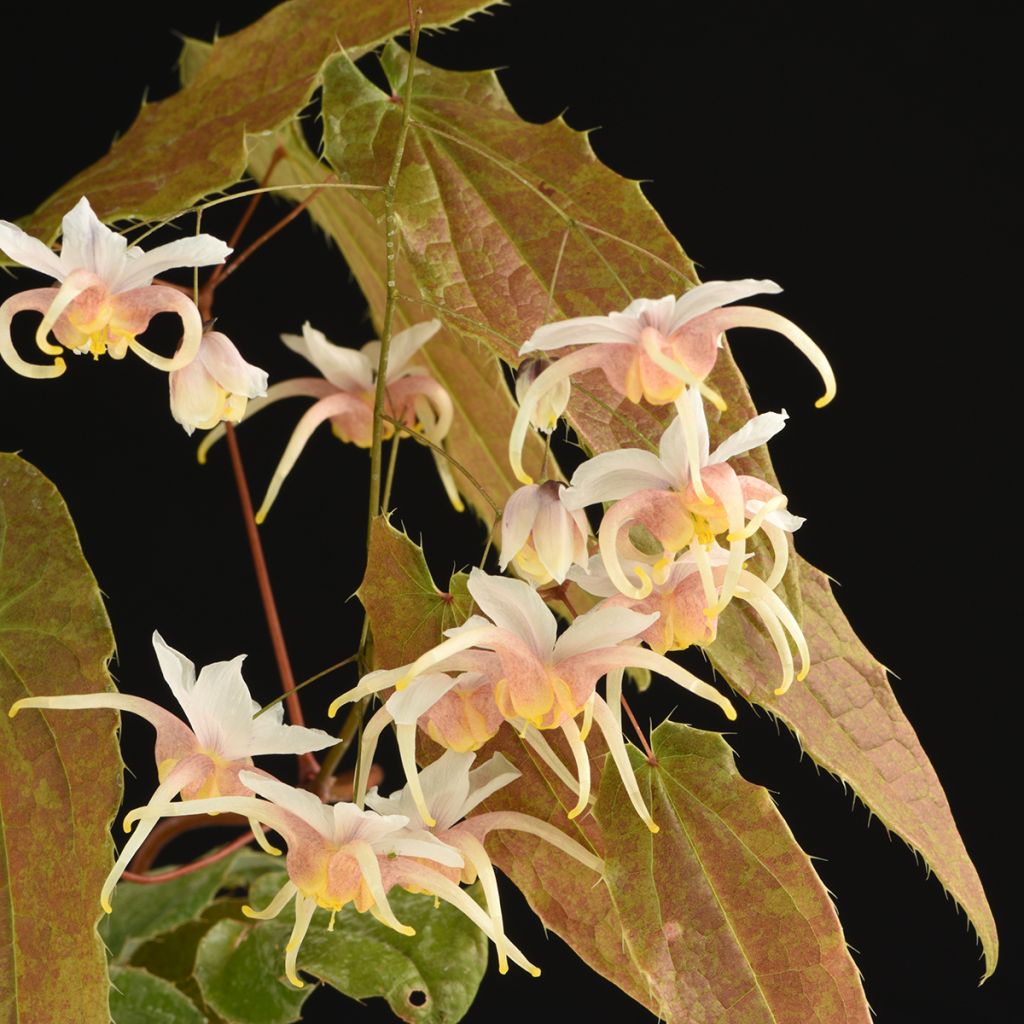

Epimedium Elenwe - Fleurs des Elfes
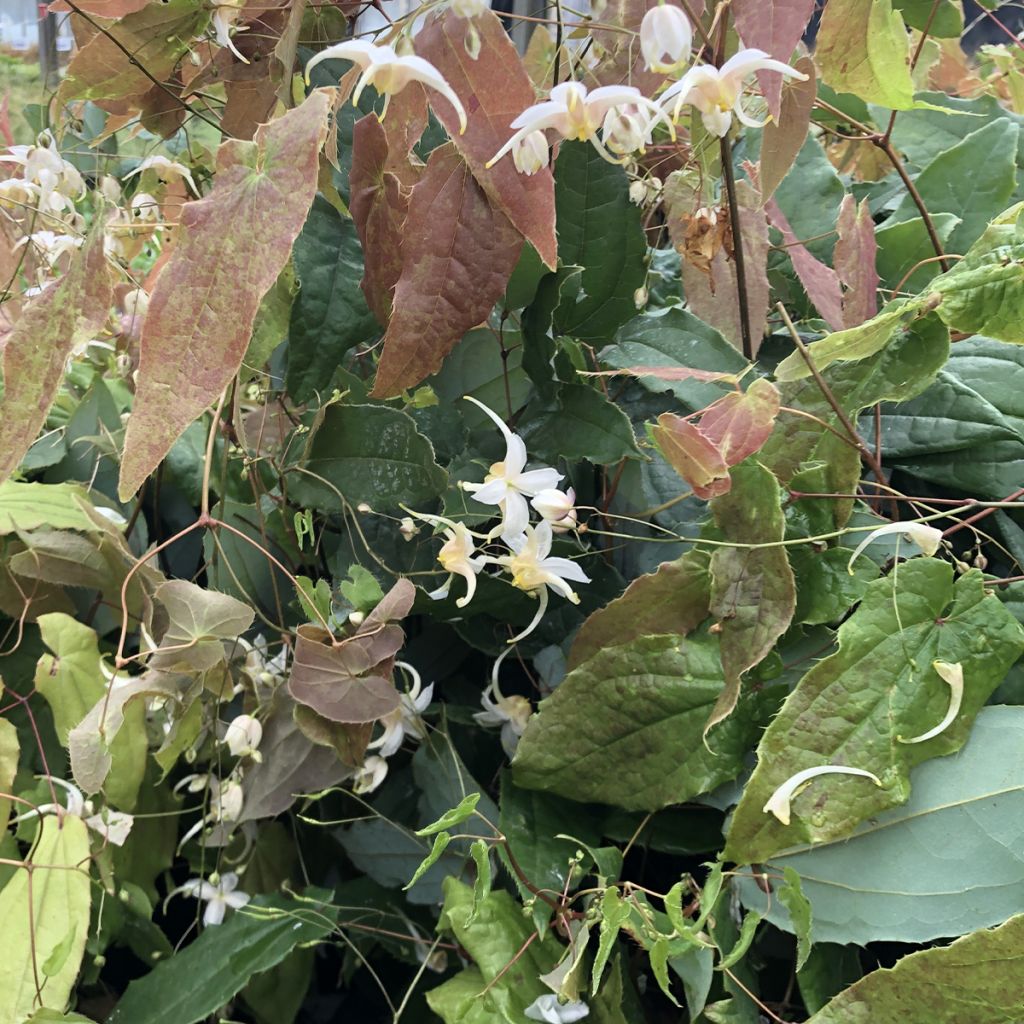

Epimedium Elenwe - Fleurs des Elfes
Epimedium Elenwe - Barrenwort
Epimedium Elenwe
Barrenwort
Impressive young plant (60cm (24in)) in excellent condition, having flowered and about to flower. Exceptional value for money.
Maryse, 17/05/2023
Why not try an alternative variety in stock?
View all →This plant carries a 12 months recovery warranty
More information
We guarantee the quality of our plants for a full growing cycle, and will replace at our expense any plant that fails to recover under normal climatic and planting conditions.
From €5.90 for pickup delivery and €6.90 for home delivery
Express home delivery from €8.90.
Does this plant fit my garden?
Set up your Plantfit profile →
Description
Epimedium 'Elemwe' is a variety of hybrid epimedium that stands out for its significant growth: when in bloom, the plant generally reaches a height of 60 cm (24in). Its cream-white flowers with a touch of pink and pale gold are relatively large for an epimedium and resemble columbines. They bloom in the spring, grouped in clusters, on a clump of olive green foliage speckled with brown. This foliage persists in mild winters. This variety grows in partial shade, in humus-rich, well-drained soil that remains slightly moist in the summer.
Belonging to the Berberidaceae family, the 'Elenwe' Epimedium is a recent horticultural creation by Thierry Delabroye. It is a rhizomatous perennial plant that establishes itself quite rapidly, forming a clump of foliage about 35 cm (14in) high, occupying 40 to 50 cm (16 to 20in) of ground space. It produces delicate flowers measuring 2.5 to 3 cm (1in) wide, which hang downwards, somewhat resembling columbines. They are composed of 4 petals with long spurs on slender and branching stems. Its foliage can be evergreen in winter and is composed of large dentate leaflets, olive green in summer, turning bronze with rust-coloured spots in spring and autumn.
Epimedium thrives in cool conditions and tolerates root competition from other plants quite well, making it suitable for the base of trees and bushes in rainy regions. As a plant of lightly shaded woodlands, it prefers humus-rich soils. The 'Elenwe' Epimedium is an exceptional perennial that deserves to be prominently placed in the garden, or even a large pot on the terrace. It pairs well with Saxifraga fortunei, Hepatica nobilis, Ferns, Hostas, Foxgloves, and other Candelabra Primroses that excel in lightly shaded beds.
Report an error about the product description
Flowering
Foliage
Plant habit
Botanical data
Epimedium
Elenwe
Berberidaceae
Barrenwort
Cultivar or hybrid
Other Epimedium - Barrenwort
Planting and care
Epimedium Elenwe thrives in cool conditions, so plant it in shade or partial shade, ideally in soil with a neutral to slightly acidic pH, rich in humus and well-drained. This variety can tolerate ordinary garden soil enriched with compost that retains some moisture in the summer.
As a plant of clear undergrowth, it prefers humus-rich soils, so an annual application of compost will be welcome.
Establishing well often takes some time and requires protection from weeds and careful watering in the first year, but it will then withstand temporary dry spells, which are common under trees in the summer. Its maintenance simply involves removing the withered foliage from the previous year at the end of winter, before the flowers appear.
Planting period
Intended location
Care
-
, onOrder confirmed
Reply from on Promesse de fleurs
Spring flowering perennials
Haven't found what you were looking for?
Hardiness is the lowest winter temperature a plant can endure without suffering serious damage or even dying. However, hardiness is affected by location (a sheltered area, such as a patio), protection (winter cover) and soil type (hardiness is improved by well-drained soil).

Photo Sharing Terms & Conditions
In order to encourage gardeners to interact and share their experiences, Promesse de fleurs offers various media enabling content to be uploaded onto its Site - in particular via the ‘Photo sharing’ module.
The User agrees to refrain from:
- Posting any content that is illegal, prejudicial, insulting, racist, inciteful to hatred, revisionist, contrary to public decency, that infringes on privacy or on the privacy rights of third parties, in particular the publicity rights of persons and goods, intellectual property rights, or the right to privacy.
- Submitting content on behalf of a third party;
- Impersonate the identity of a third party and/or publish any personal information about a third party;
In general, the User undertakes to refrain from any unethical behaviour.
All Content (in particular text, comments, files, images, photos, videos, creative works, etc.), which may be subject to property or intellectual property rights, image or other private rights, shall remain the property of the User, subject to the limited rights granted by the terms of the licence granted by Promesse de fleurs as stated below. Users are at liberty to publish or not to publish such Content on the Site, notably via the ‘Photo Sharing’ facility, and accept that this Content shall be made public and freely accessible, notably on the Internet.
Users further acknowledge, undertake to have ,and guarantee that they hold all necessary rights and permissions to publish such material on the Site, in particular with regard to the legislation in force pertaining to any privacy, property, intellectual property, image, or contractual rights, or rights of any other nature. By publishing such Content on the Site, Users acknowledge accepting full liability as publishers of the Content within the meaning of the law, and grant Promesse de fleurs, free of charge, an inclusive, worldwide licence for the said Content for the entire duration of its publication, including all reproduction, representation, up/downloading, displaying, performing, transmission, and storage rights.
Users also grant permission for their name to be linked to the Content and accept that this link may not always be made available.
By engaging in posting material, Users consent to their Content becoming automatically accessible on the Internet, in particular on other sites and/or blogs and/or web pages of the Promesse de fleurs site, including in particular social pages and the Promesse de fleurs catalogue.
Users may secure the removal of entrusted content free of charge by issuing a simple request via our contact form.
The flowering period indicated on our website applies to countries and regions located in USDA zone 8 (France, the United Kingdom, Ireland, the Netherlands, etc.)
It will vary according to where you live:
- In zones 9 to 10 (Italy, Spain, Greece, etc.), flowering will occur about 2 to 4 weeks earlier.
- In zones 6 to 7 (Germany, Poland, Slovenia, and lower mountainous regions), flowering will be delayed by 2 to 3 weeks.
- In zone 5 (Central Europe, Scandinavia), blooming will be delayed by 3 to 5 weeks.
In temperate climates, pruning of spring-flowering shrubs (forsythia, spireas, etc.) should be done just after flowering.
Pruning of summer-flowering shrubs (Indian Lilac, Perovskia, etc.) can be done in winter or spring.
In cold regions as well as with frost-sensitive plants, avoid pruning too early when severe frosts may still occur.
The planting period indicated on our website applies to countries and regions located in USDA zone 8 (France, United Kingdom, Ireland, Netherlands).
It will vary according to where you live:
- In Mediterranean zones (Marseille, Madrid, Milan, etc.), autumn and winter are the best planting periods.
- In continental zones (Strasbourg, Munich, Vienna, etc.), delay planting by 2 to 3 weeks in spring and bring it forward by 2 to 4 weeks in autumn.
- In mountainous regions (the Alps, Pyrenees, Carpathians, etc.), it is best to plant in late spring (May-June) or late summer (August-September).
The harvesting period indicated on our website applies to countries and regions in USDA zone 8 (France, England, Ireland, the Netherlands).
In colder areas (Scandinavia, Poland, Austria...) fruit and vegetable harvests are likely to be delayed by 3-4 weeks.
In warmer areas (Italy, Spain, Greece, etc.), harvesting will probably take place earlier, depending on weather conditions.
The sowing periods indicated on our website apply to countries and regions within USDA Zone 8 (France, UK, Ireland, Netherlands).
In colder areas (Scandinavia, Poland, Austria...), delay any outdoor sowing by 3-4 weeks, or sow under glass.
In warmer climes (Italy, Spain, Greece, etc.), bring outdoor sowing forward by a few weeks.

































